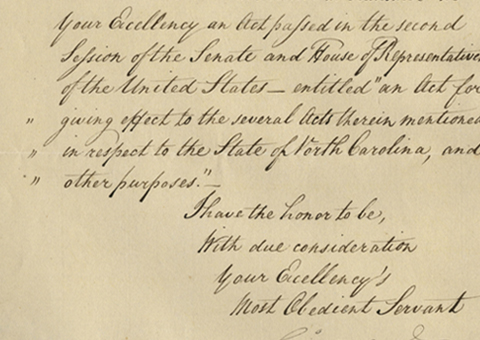Jews and American Finance: An American Express Company Stock Certificate Signed by Henry Wells and William G. Fargo, Issued to Rabbi Arnold Fischel, and Signed by Fischel on the Verso


An Important and Likely Unique Piece of American Judaica Relating to Jewish Equality and Investment in the United States
Fischel was instrumental in persuading President Lincoln to appoint Jewish chaplains for the Union Army, which constituted a great advance in Jewish rights
The only autograph of Fischel we can find ever having reached the market
Over the course of the Civil War, some 7,000 Jews out of a total Jewish population...
Fischel was instrumental in persuading President Lincoln to appoint Jewish chaplains for the Union Army, which constituted a great advance in Jewish rights
The only autograph of Fischel we can find ever having reached the market
Over the course of the Civil War, some 7,000 Jews out of a total Jewish population of 250,000 served with the Union forces. Some units had large numbers of Jews in them, and like their non-Jewish fellow soldiers, saw combat against the Confederates and suffered casualties. The struggle to attend to their spiritual needs reached the highest levels of the U.S. government, and ultimately involved President Lincoln himself.
In September 1861, the 5th Pennsylvania Cavalry (Cameron’s Dragoons) installed as their regimental chaplain a Jewish Hebrew teacher, Michael M. Allen. But the military chaplaincy law of 1861 stipulated that any clergymen serving as chaplain to Union forces must be a regularly ordained minister of some Christian denomination, and chaplains served at the pleasure of the US Christian Commission. An effort by an Ohio congressman to have the law’s wording made more inclusive had failed, though he had argued that “There is a large body of men in this country, and one growing continually, of the Hebrew faith whose adherents are as good citizens and as true patriots as any in the country”. When the Christian Commission learned that a Jewish man was serving the regiment as chaplain, it demanded his removal. Allen, who was not a Rabbi, resigned that very month.
The same regiment then elected Rabbi Arnold Fischel, the minister of New York’s Shearith Israel congregation, to be its rabbi. There was no question as to Fischel’s credentials, and when the War Department turned down the request for his commission on the grounds of the statute, the Board of Delegates of American Israelites invited Fischel to lobby under their banner for a change to the language in the Acts which had resulted in his rejection, and he immediately accepted. He was granted an audience with President Lincoln on the morning of December 11, 1861, and Fischel later noted that the President received him with courtesy. The rabbi came armed with letters of recommendation from several Republican politicians and also petitions from a variety of communities around the country, signed by both non-Jews and Jews, arguing that the existing law was unconstitutional and unfair. Lincoln told Fischel he had not realized there was discrimination against Jewish clergy. On December 14 Lincoln sent the rabbi a letter in which he promised to urge Congress to pass a new law broad enough to cover Jewish interests. He wrote Fischel, “I find that there are several particulars in which the present law in regard to Chaplains is supposed to be deficient, all of which I now design presenting to the appropriate Committee of Congress. I shall try to have a new law broad enough to cover what is desired by you in behalf of the Israelites.”
On July 17, 1862, Lincoln proposed to Congress an amendment to the law, stipulating that chaplains needed to be ordained only by some religious denomination. He was ultimately successful in having Congress change the word “Christian” to “religious,” so Jewish chaplains were now permitted in the Union Army. This was more than a simple technical change, it was a great advance for Jewish equality in the United States; and Rabbi Fischel had been the instrument to bring it to pass. Rabbi Jacob Frankel was appointed the first Jewish chaplain on September 18, 1862, Lincoln himself signing Rabbi Frankel’s commission.
Despite the key role he played in advancing the cause of Jewish rights in the United States, Rabbi Arnold Fischel was only in the United States from 1856-1862. In 1858 he made an investment: he bought 5 shares of stock in the American Express Company. That company had been founded as a joint stock corporation only eight years earlier, with the merger of the express companies owned by Henry Wells and William G. Fargo (who also founded Wells Fargo). Wells and Fargo issued Fischel a stock certificate.
Document signed, New York, April 21, 1858, being share certificate #3188 for 5 shares, showing capital stock authorized of 7,500 shares, and an engraving of a railroad train, signed by both Wells and Fargo, as will as Alexander Holland, the company treasurer. On the verso is a notarization, which though not filled out was nonetheless signed by Fischel. Our efforts to find even one other signature of Fischel that has reached the market have proved unavailing, making this document perhaps unique. We acquired it as part of a collection put together in 1969, when it was last offered by Charles Hamilton in his heyday.

Frame, Display, Preserve
Each frame is custom constructed, using only proper museum archival materials. This includes:The finest frames, tailored to match the document you have chosen. These can period style, antiqued, gilded, wood, etc. Fabric mats, including silk and satin, as well as museum mat board with hand painted bevels. Attachment of the document to the matting to ensure its protection. This "hinging" is done according to archival standards. Protective "glass," or Tru Vue Optium Acrylic glazing, which is shatter resistant, 99% UV protective, and anti-reflective. You benefit from our decades of experience in designing and creating beautiful, compelling, and protective framed historical documents.
Learn more about our Framing Services











































































































